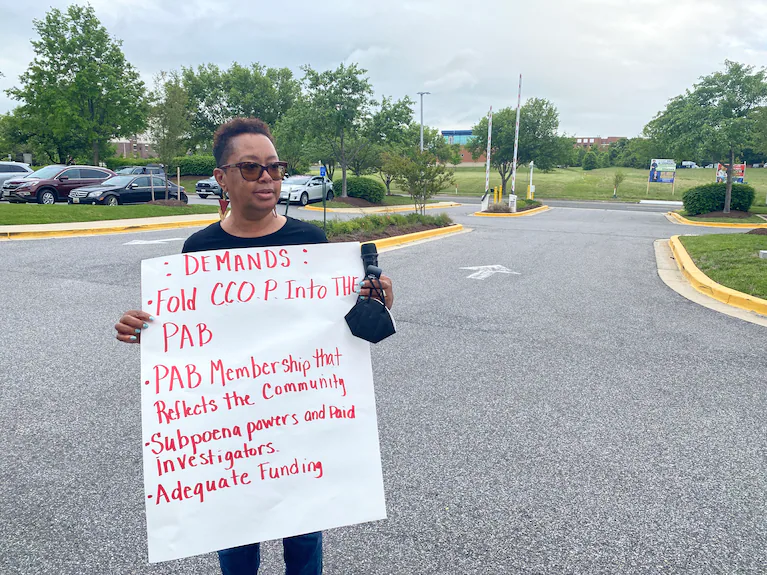As the deadline to pass a police accountability bill in Prince George’s County nears, lawmakers and community members continue to spar over how it will be implemented and what it will look like. Much of the concern appears to be focused on who will serve on a soon-to-be-created police accountability board and what powers board members will have.
Prince George’s County Executive Angela Alsobrooks has developed a list of 11 nominees for the County Council to consider for confirmation to the board, but community members have asked for more public involvement in the process.
“The importance of establishing this board is to restore the trust within the community,” Kenneth Clark, a pastor and civil rights advocate, said at a council meeting Tuesday. “If you want the community to get involved, to police their own community, you have to include the community in the process.”
Clark was one of many members of the community who spoke as the council met earlier Tuesday to hear public testimony and discuss the legislation that would establish a Police Accountability Board (PAB) and an Administrative Charging Committee (ACC) that would review alleged police misconduct.
Police accountability legislation, passed in the wake of George Floyd’s murder by police, has aimed to create ways for civilians to be involved in the police disciplinary process. Across the state, counties are implementing the boards required under the Maryland Police Accountability Act of 2021, passed by the General Assembly and expected to be implemented on July 1.
The current mechanism for citizen oversight in the county is the Citizen Complaint Oversight Panel (CCOP), which is in the process of being repealedand replaced. According to the law, the CCOP has independent investigatory powers in reviewing complaints of police misconduct, which activists are advocating to fold into the PAB, and with adequate funding.
According to a draft bill, the PAB, made up of civilians, would meet quarterly with law enforcement officials and agencies within the county “to improve matters of policing.” They would also receive police misconduct complaints, review disciplinary outcomes and make recommendations for policy changes to “improve police accountability.”
The ACC will be responsible for determining whether an officer should be administratively charged after reviewing the law enforcement agency’s investigatory findings of misconduct complaintsinvolving an officer and a civilian, and, if so, recommend discipline, according to the draft bill. The PAB would also have the ability to appoint a civilian to a three-member trial board, a body that determines how an officer is disciplined.
This article was written by the Washington Post, read the full article here.
Photo: Beverly John, coordinator for the Prince George’s County Coalition for Police Accountability, demonstrates at the Wayne K. Curry administration building in Prince George’s County on May 12. (Jasmine Hilton/TWP)










